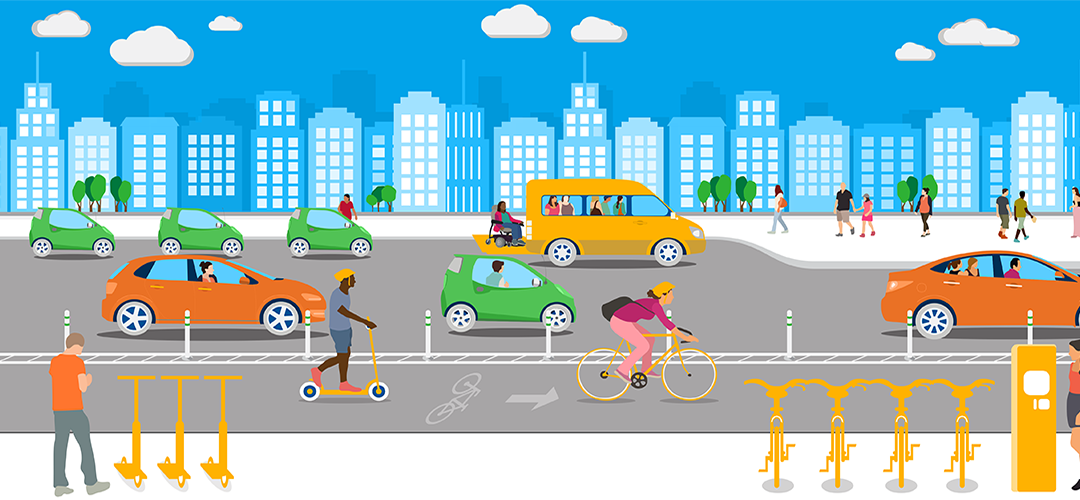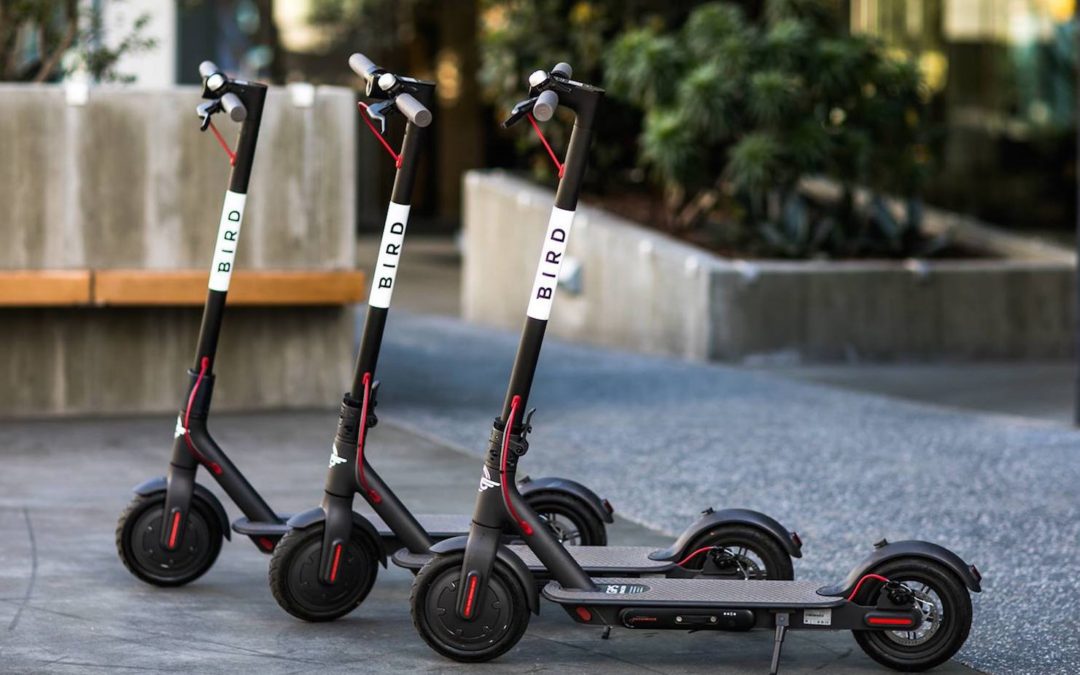
by Innovative Mobility Research | Oct 15, 2018 |
Lily Maxwell Oct 13, 2018 Lily Maxwell, smart cities content writer for iomob.net, interviews Susan Shaheen Ph.D., a pioneer in future mobility strategies. She was among the first to observe, research, and write about changing dynamics in shared mobility and the likely scenarios through which automated vehicles will gain prominence. She is an internationally recognized expert in mobility and the sharing economy. As the “mother” of shared mobility and someone who is well-known for working in sustainable transportation — what inspired you to work in this field? My desire to work professionally in the area of the environment and technology goes back to high school. Sustainability, recycling, and climate change were not as popularized back then, and I clearly remember thinking: why does it have to be so hard for people do the right thing and support the environment in their choices? When I went to college, I took as many environmental classes as I could, before completing a master’s degree in public policy, where I specialized in environmental policy. Then I went to Washington DC to “save the world”, but I soon realized that I wasn’t even close to saving the world from a policy perspective. So I decided that I need a higher degree and came to California… Read the full article...

by Innovative Mobility Research | Oct 3, 2018 |
SAE International Oct 3, 2018 SAE International announces it has published new definitions for shared mobility terms – “Taxonomy and Definitions for Terms Related to Shared Mobility and Enabling Technologies – J3163™.” A consequence of the ever-growing and -evolving landscape of shared mobility is the lack of standardized terms and definitions. The shared and digital mobility industry is challenged with discrepancies in use and definition of terms, which often create ambiguity and confusion for policymakers, regulatory agencies, and the broader public. J3163™ defines shared mobility as “the shared use of a vehicle, motorcycle, scooter, bicycle, or other travel mode; it provides users with short-term access to a transportation mode on an as-needed basis.” J3163™ includes definitions for shared modes (e.g., carsharing, bike-sharing, ride-sourcing, etc.) and enabling technologies. “J3163™ brings together a taxonomy and definitions for the rapidly evolving area of shared and digital mobility. A common set of definitions, which crosses business models and international boundaries, is needed,” Susan Shaheen, PhD, Co-Director, Transportation Sustainability Research Center and Adjunct Professor, UC Berkeley; and document co-sponsor of J3163™, said… Read the full article...

by Innovative Mobility Research | Sep 26, 2018 |
An incentive program points to the company’s ambitions beyond ride-hailing By Joshua Brustein Sep. 26, 2018 Two years ago John Zimmer, Lyft Inc.’s co-founder and president, predicted that car ownership would be non-existent in major American cities by 2025. With seven years left to turn the country’s transportation landscape upside down, Lyft is now offering to pay people in about three-dozen cities to park their cars for a month, with the compensation coming in the form of $500 to $600 in credits for its ride-hailing service. There are also credits for bike- and car-sharing services, and public transit. The move is a marketing gambit. Lyft will choose about 2,000 people to participate and hope that they will be honest about not using their personal car. This program will run for only one month, but it points to a real shift within the ride-hailing industry. Both Lyft and Uber Technologies Inc. have spent the year adding new types of transportation to their platforms. They each bought a bike-sharing company – Uber’s choice was Jump; Lyft bought Motivate – and are developing their own scooter-sharing services. Lyft also redesigned its app to highlight its carpool service, as well as public transportation… Read the full article here: https://www.bloomberg.com/news/articles/2018-09-26/lyft-is-paying-people-to-stop-driving-for-a-month...

by Innovative Mobility Research | Aug 15, 2018 |
Denver impounds hundreds of scooters without operating permits before drafting rules of the road for pilot program By Eliot Brown Aug. 11, 2018 Shortly after two startups dropped hundreds of scooters on the streets of Denver without permission in May, frustrated city officials responded swiftly with vehicles of their own. A platoon of workers in vans and pickups scooped up more than 300 of the scooters and impounded them. As shared-scooter companies Bird Rides Inc. and Lime, flush with investors’ cash, race into new cities around the U.S., they are finding city officials emboldened to enact regulations that limit the companies’ rapid growth. Urban authorities from… Read the full article here:...

by Innovative Mobility Research | Jul 25, 2018 |
Mile Marker Summer 2018 Study Looks at How We’ll Get From Here to There as Caltrans Plans for Future. New technology, evolving economic and societal directions, and a changing climate are creating a seismic shift in the way California moves people and goods — and that makes transportation planning particularly challenging. A new study commissioned by Caltrans suggests that the field of transportation is in the midst of a transformation not experienced since the invention of the automobile. There are many intriguing possibilities and trends emerging, according to the Future of Mobility White Paper, which is intended to inform Caltrans planners who will lay the groundwork for California’s transportation network into 2050. “The rapid changes in the transportation industry will dramatically alter California’s transportation system and affect the way Caltrans operates,” said Chris Schmidt, Caltrans’ Division Chief of Transportation Planning. “The Department will have to develop and implement realistic policies while taking into account rapidly changing technological advancements, many of which continue to evolve and new ones emerge.” The revolution in moving people and goods has already arrived. In just the last five years, ride-sourcing companies such as Uber and Lyft, car-sharing services like Getaround and car2go, and bike-sharing businesses such as Spin and Ford GoBike have expanded market share. Autonomous vehicles are a reality, drones and self-driving trucks could shake up the goods-moving industry, and technologies considered unthinkable a decade ago — such as hyperloop and air taxis — are no longer just science fiction imagination. Not only are modes of transportation changing, but major advancements have been made in vehicle safety technology. The refinement of on-board cameras,...






